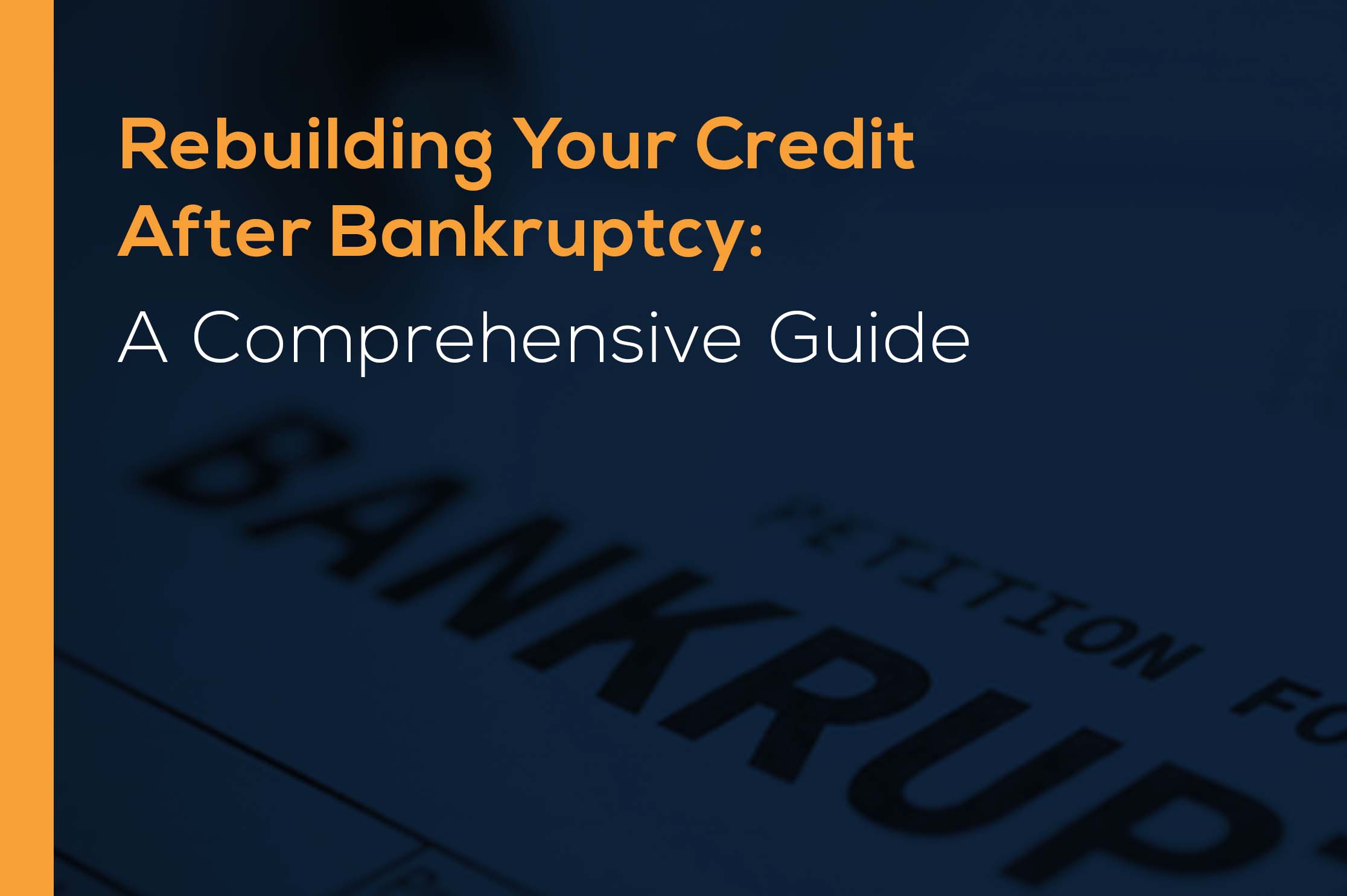Bankruptcy can be a daunting experience, but it doesn’t have to define your financial future. While it may take time and effort, rebuilding your credit after filing for bankruptcy is entirely possible. With dedication and smart financial practices, you can gradually improve your credit score and regain financial stability. Here’s a comprehensive guide on the best ways to rebuild your credit after bankruptcy:
Understand Your Credit Report
Before you start rebuilding your credit, it’s crucial to understand where you stand. Obtain copies of your credit reports from all three major credit bureaus – Equifax, Experian, and TransUnion. Review these reports carefully to identify any errors or inaccuracies. Dispute any discrepancies promptly to ensure that your credit report reflects accurate information.
Create a Budget and Stick to It
Creating a realistic budget is fundamental to managing your finances effectively. Calculate your monthly income and expenses to determine how much you can afford to spend and save each month. Prioritize essential expenses such as housing, utilities, and groceries, and allocate a portion of your income towards paying off debts and building savings. Avoid overspending and impulse purchases that can derail your financial goals.
Establish an Emergency Fund
Building an emergency fund is essential for weathering unexpected financial setbacks without resorting to credit cards or loans. Aim to save at least three to six months’ worth of living expenses in a readily accessible account, such as a savings or money market account. Start small if necessary, but make consistent contributions to your emergency fund over time.
Apply for a Secured Credit Card
A secured credit card can be a valuable tool for rebuilding credit after bankruptcy. Unlike traditional credit cards, secured cards require a cash deposit as collateral, which serves as your credit limit. Make timely payments and keep your credit utilization low to demonstrate responsible credit management. Over time, some secured card issuers may offer the opportunity to upgrade to an unsecured card based on your payment history and creditworthiness.
Consider Credit-Builder Loans
Credit-builder loans are designed to help individuals establish or rebuild credit. With a credit-builder loan, the lender holds the loan proceeds in a savings account or certificate of deposit (CD) as collateral. As you make fixed monthly payments, the lender reports your payment activity to the credit bureaus, helping you establish a positive payment history. Once you’ve repaid the loan in full, you receive access to the funds, along with potential improvements to your credit score.
Become an Authorized User
If you have a trusted friend or family member with good credit, consider asking them to add you as an authorized user on their credit card account. As an authorized user, you can benefit from the primary cardholder’s positive payment history and credit utilization ratio. However, it’s essential to choose someone who manages their credit responsibly, as any late payments or high balances could negatively impact your credit score.
Monitor Your Credit Regularly
Stay vigilant about monitoring your credit score and report to track your progress and identify areas for improvement. Many credit card issuers and financial institutions offer free credit monitoring services that provide access to your credit score and alerts for significant changes or suspicious activity. Regularly reviewing your credit report allows you to address any issues promptly and ensure that your credit profile remains accurate and up-to-date.
Explore Credit Counseling Services
Credit counseling services can provide valuable guidance and support as you navigate the process of rebuilding your credit. Certified credit counselors can help you develop a personalized debt repayment plan, negotiate with creditors on your behalf, and offer financial education and resources to improve your money management skills. Look for reputable nonprofit credit counseling agencies accredited by organizations like the National Foundation for Credit Counseling (NFCC) to ensure you receive trustworthy assistance.
Pay Bills on Time, Every Time
Consistently paying your bills on time is one of the most critical factors in rebuilding your credit after bankruptcy. Late payments can have a significant negative impact on your credit score and signal to lenders that you may be a higher credit risk. Set up automatic payments or reminders to ensure that you never miss a due date. Making timely payments demonstrates your reliability and commitment to financial responsibility, helping to rebuild trust with creditors and improve your creditworthiness over time.
Reduce Credit Card Balances
High credit card balances relative to your credit limits, also known as high credit utilization, can harm your credit score. Aim to keep your credit card balances low compared to your available credit to demonstrate responsible credit management. Paying down existing balances and avoiding maxing out your credit cards can positively impact your credit utilization ratio and contribute to an improvement in your credit score. Consider prioritizing debt repayment strategies that target high-interest credit card balances to save money on interest charges and accelerate your progress toward debt-free living.
Diversify Your Credit Mix
Having a diverse mix of credit accounts, such as credit cards, installment loans, and retail accounts, can positively influence your credit score. If you’ve primarily relied on credit cards in the past, consider diversifying your credit portfolio by taking out an installment loan, such as a personal loan or auto loan. Make sure to only borrow what you can afford to repay comfortably and choose reputable lenders with favorable terms and interest rates. Demonstrating responsible management of different types of credit can strengthen your credit profile and signal to lenders that you can handle various financial obligations responsibly.
Be Patient and Persistent
Rebuilding your credit after bankruptcy is a journey that requires time, discipline, and perseverance. While the process may seem daunting at times, remember that every positive financial decision you make contributes to your long-term creditworthiness and financial well-being. Celebrate your progress, no matter how small, and remain focused on your ultimate goal of achieving a healthier credit score and financial stability. By staying patient and persistent in your efforts, you can overcome past challenges and build a brighter financial future for yourself.
Conclusion
In summary, rebuilding your credit after bankruptcy is a multifaceted endeavor that requires a combination of strategic financial management, responsible credit usage, and perseverance. By following these tips and staying committed to your financial goals, you can gradually improve your credit score, regain the trust of lenders, and pave the way toward a more secure financial future. Remember, the journey to rebuilding your credit may not always be easy, but with determination and dedication, you can achieve lasting success.

